
Delivering Online Courses Through a Collaboration of 6 TANZ Institutions Using Networked Technology
Status
Completed: 30 June 2009
Project Details
A project completed in 2009, undertaken by six TANZ member institutions, to investigate the tutor and learner experiences of the myLearn Network of provision pilot and the technical and administrative impact on institutions.
Aims:
The main aims of the project were to:
- determine what the impacts are of delivering fully networked online/blended courses on learners, teachers, institutional practices and learning support
- determine what the technological and administrative constraints and issues are in networked provision delivery
- determine what the staff professional development needs are in networked provision delivery to assure highest quality teaching and learner support and engagement
- determine the range of co-teaching and blended delivery options and strategies that can be implemented in a widely distributed network of provision
- create and document a robust set of principles and guidelines for and emergent grounded theory about networked provision of blended eLearning courses
- create an action research culture that focused on improving in practice through a continuous cycle of investigation, intervention, reflection, planning and implementation.
Methodology:
The Participatory Action Research project used a three cycle, reiterative and spiral methodology, wherein each cycle re-examines, reflects and builds on the experience, data and outcomes generated in the previous cycle:
- Cycle 1: The Reconnaissance Phase explored the issues generated by the start-up phase of the pilot of the myLearn NZ Diploma in Business project, including the technical and administrative systems development, the preparation of courses and tutors and the induction and orientation of the learners.
- Cycle 2: The Re-Design Phase reviewed the start-up of the pilot, and examined the experience of tutors and learners, technical issues and course learning design issues. This led to a re-think of aspects of the way the course delivery was managed.
- Cycle 3: The Re-Evaluation Phase evaluated of the entire pilot, including the PAR implementation and reflected on the totality of the experience and generated strong recommendations, guidelines and principles for future developments.
Team
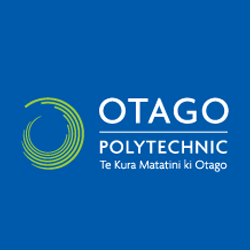
Keith Tyler-Smith
Project Leader
Otago Polytechnic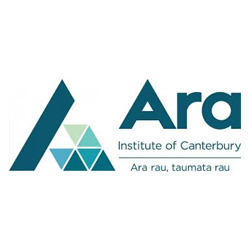
Jan Kent
Christchurch Polytechnic Institute of Technology
Louise Taylor
Christchurch Polytechnic Institute of Technology
Adam Hollingworth
Christchurch Polytechnic Institute of Technology
Nick Ford
Christchurch Polytechnic Institute of Technology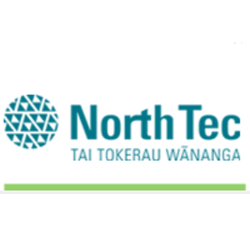
Julie Lawrence
NorthTec
Vasi Doncheva
NorthTec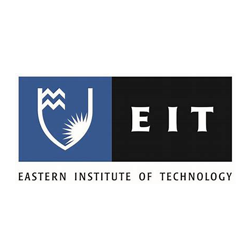
Donna Petry
Eastern Institute of Technology
Joyce Seitzinger
Eastern Institute of Technology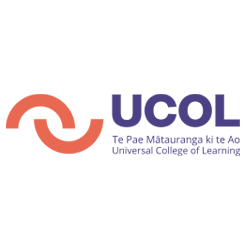
Sue Ireland
Universal College of Learning
Phil Thomsen
Universal College of Learning (UCOL)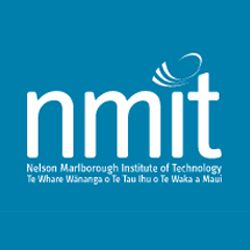
Sue Malthus
Nelson Marlborough Institute of Technology
David Sturrock
Nelson Marlborough Institute of Technology
Phil Morrison
Otago Polytechnic
Darrell Love
Otago Polytechnic
Terry Marler
Otago Polytechnic
Rachel Pringle
Otago PolytechnicStatus
Funding
$10,000.00 (excl GST)
Key Findings
The key findings from the project included:
- There is little difference in the impact on learners in an eLearning network of provision delivery than in the usual online course delivery. The impacts that learners experienced were the result of such things as changes in course tutor, the lack of experience of some tutors and the fact that some learners were not prepared for engaging with a demanding online learning experience.
- The main impact on institutional processes and practices were related to TEC funding processes for the pilot which resulted in a very tight timeline for the project, which in turn created some difficulties for the institutions involved. The lack of adequate lead time for the institutions to get appropriately prepared for the project’s implementation also had an impact.
- Technical constraints in this pilot were mostly a factor of time and the varying levels of readiness to implement the required version of Moodle to facilitate the network capability between the institutions.
- There were administrative constraints around managing the very high level of interinstitutional communications needed to transmit information about individual courses, exam venues, timetables, learning support, reporting results, and withdrawals.
- It was clear that professional development in eLearning and the use of Moodle was a major issue for the pilot. The fact that most of tutors involved in the pilot had limited online teaching experience and had not had the opportunity to become familiar with the Moodle platform prior to the pilot represented a significant constraint.
- The structure, complexity and timing constraints of the pilot precluded anything other than a limited attempt to implement co-teaching or the blending of online and face to face teaching.
- There were a range of tangible benefits that came out of the pilot including: the Moodle networking technology works effectively; technically networked delivery of online courses is little different from normal modes of online delivery; an increased level of capability across all six TANZ institutions in technical, administrative and online teaching skills; and a powerful and enthusiastic spirit of collaboration, especially among the eLearning Advisors at each institution.
Key Recommendations
Highlighted below are the key principles that form the basis of a set of guidelines and recommendations developed as a result of this project:
Project championship | A key to successful inter institutional and intra-institutional collaboration in eLearning network of provision project is the championing of the project at a sufficiently senior level within the institution’s management structure. This ensures that adequate resources can be made available and that inter-institutional and internal communication, conflicts and issues can be appropriately managed.
Project management | The complex demands of an eLearning network of provision collaboration are such that a project management and project team approach by each of the participants is required in order to manage the technical, academic, administrative, internal and external communications, learning support and teaching tasks involved.
Professional development | Tutors expected to teach in an eLearning network of provision environment should have prior eLearning facilitation experience and familiarity with the delivery platform. The added complexity of the networked environment makes it important to provide ready access to appropriate eLearning professional development and training in the use of the delivery platform and adequate and appropriate support during course delivery.
Tutor workload | Adequate allowance should be made for online teaching hours that realistically take into account the online teaching experience of the tutor and the added complexity and additional administrative course workload that the eLearning network of provision entails.
Support | The additional complexity and high levels of intra and inter-institutional communications, the administrative workload and technical support required in an eLearning network of provision should be acknowledged and accepted by senior management and appropriate and adequate levels of support be provided.
Project resourcing | An eLearning network of provision initiative requires a higher level of resourcing than that usually required for non-networked modes of online delivery, particularly in the set-up phase of the collaboration, and as such should be planned for and appropriately and adequately resourced.
Differences in institutional processes and structures | Different institutions involved in a network of provision of eLearning courses will have different administrative, academic and technical structures, processes and roles. These must be recognised, accepted and ways found to accommodate these realities and mitigate the potential problems they may generate.
Collaboration | Collaboration cannot be mandated. It must arise out of a history of consistent behaviour, integrity, trust, a willingness to listen, a commitment to share experience and knowledge and an ability to put aside tendencies for patch protection and exclusivity of ownership.